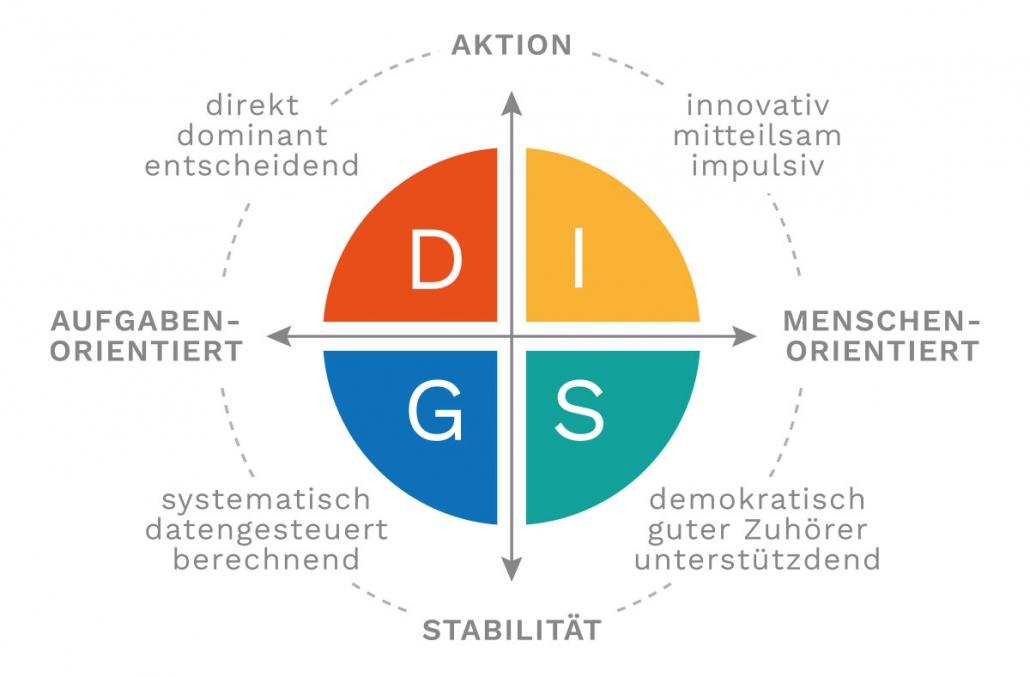The DiSG® Model is based on a typology from William Moulton Marston. The abbreviation stands for Dominance, Initiative, constancy (‘Stetigkeit’), and conscientiousness (‘Gewissenhaftigkeit’).
It supports people in recognising their own behavioural and personality structures and using that knowledge to communicate better. It’s a good option for analysing one’s behaviour more precisely and jointly establishing improvement steps for personal practice in training.
The following DiSG® behavioural profiles have been tried and tested:
DiSG® Work of Leaders
Provides answers to the question ‘What is good leadership?’ and shows how one should act accordingly.
DiSG® Productive Conflicts
Behave better during conflicts and learn to solve them constructively
DiSG® Sales
Improve sales behaviour and better understand the customer’s concerns and goals. How do I create long-term cooperation with customers?
DiSG® Workplace
Achieve good communication with other people in the workplace: in the team, in projects, and in departments.
If you would like to know more about how to improve your team’s cooperation with this method, click here.






